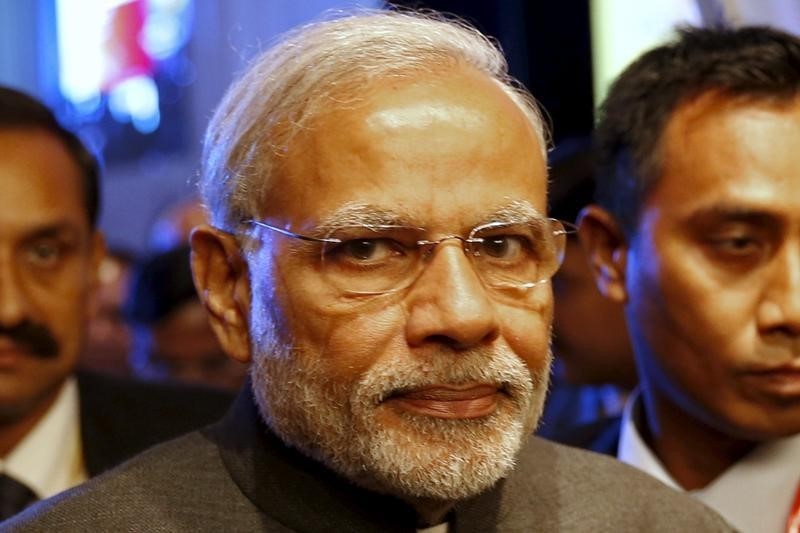(Bloomberg) -- The right to reject political candidates has been gaining popularity among disenchanted Indian voters in recent elections, a trend that is starting to spook Prime Minister Narendra Modi’s ruling party.
In the national vote beginning April 11, voters will get to pick "None of the above," or Nota -- a button at the bottom on electronic voting machines after the list of candidates. While no current polls gauge the strength of Nota, past elections indicate it could be appealing for disgruntled home buyers, distressed farmers and villagers, and jobless youth.
"The Nota is catching up,’’ said Anil Verma, national coordinator of the Association for Democratic Reforms, a Delhi-based organization working on electoral and political reform. "Over the years in elections -- in general and state assemblies -- the Nota share is increasing. Seeing the trend, perhaps this time there will be more Nota votes as there is disenchantment towards politicians and political parties.’’
Better employment opportunities is the top priority for India voters, while they remain dissatisfied with the performance of federal and state governments on issues like healthcare, safe drinking water, roads and public transportation, according to the association’s survey of about 270,000 people released on March 25.
Fears that various voter groups are planning to use Nota to show their frustration with the political system has worried Modi’s backers. Rashtriya Swayamsevak Sangh, the ideological parent of the ruling Bharatiya Janata Party, has launched a campaign against Nota.
"Nota in the present form pushes people not to believe in democracy," said RSS spokesman Rajiv Tuli by phone from New Delhi on Friday. "We are doing door-to-door campaigns asking people for 100 percent voting and no Nota."
Introduced to India’s electoral system in 2013, Nota has no electoral value and cannot alter the outcome of the poll -- rather, it allows voters who are not satisfied with any candidate to exercise their right to show their anger and frustration. In the 2014 elections, Nota got more than six million votes or 1.08 percent of total share.
In closely-fought elections in December there were at least 23 assembly constituencies in Madhya Pradesh and 16 in Rajasthan where Nota votes were more than the margin of victory, Sanjay Kumar, director of the Centre for the Study of Developing Societies, said in an article.
India will vote in seven phases between April 11 and May 19, with results released on May 23 determining whether Modi will retain power.
